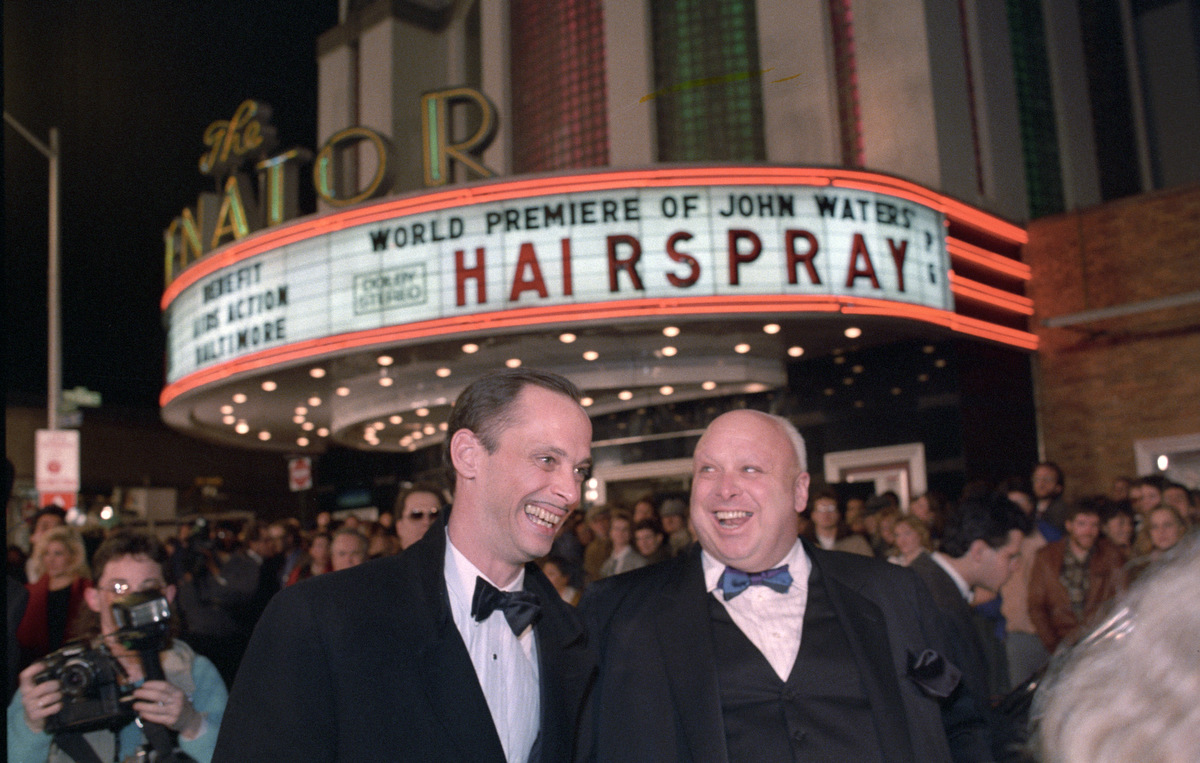If you can get past the cost of housing on Capitol Hill, it would seem like a pretty good time to be gay in Seattle. Referendum 74 passed last year, and Ed Murray appears certain to elected be our first gay mayor next month. So when the Seattle Lesbian & Gay Film Festival rolls around, now in its 18th edition, it’s occasion to cheer, but also a chance to peer outside our smugly enlightened little bubble.
Down in Fort Worth, Texas, for instance, that fading cow town was inching toward tolerance in 2009 when a new club opened to serve the LGBT community. But as we see in Robert L. Camina’s doc Raid of the Rainbow Lounge (Pacific Place, 11:30 a.m. Sun., Oct. 20), local law enforcement was not quite so welcoming. A contingent of cops and state liquor-control agents came crashing through the door, arrested a half-dozen patrons, and cracked one guy’s skull on the concrete floor. Was this, 40 years after Stonewall, Stonewall all over again? Not quite. Even in the heart of Red-statelandia, activists quickly got their cause into the media, a gay city councilman championed it, hearings followed, and the blue wall began to crumble. If you’re a fan of drawn-out municipal process—and who in Seattle isn’t?—all the protests, citizen testimony, and police-disciplinary depositions are oddly reassuring. The authorities are held accountable, and cops actually lose their jobs. Maybe Texas ain’t so red after all.
Another state in transition? Delaware. The New Black (Northwest Film Forum, 7:30 p.m. Mon., Oct. 14) follows its ballot referendum Question 6 last year, asking voters to uphold or affirm the Democratic legislature’s new marriage-equality law. As with our Referendum 74 and California’s Proposition 8, out-of-state money and the religious right invested in a local fight; but what makes Yoruba Richen’s film so valuable is its focus on the black faith community. She treats both sides non-judgmentally: Pastors fret about the rise from slavery to respectability being tainted by scandalous sex talk; activists patiently doorbell households that are inclusive inside, but Scripture-spouting on the stoop. Propriety is important. The topic is still fraught for African-Americans—“dual oppression” versus “black first,” says one advocate. Even a preacher who’s come around to the pro-equality camp can joke of the traditional black church’s view of homosexuality as “a white man’s disease.”
A better-known story is that of the airline passengers who fought back against the 9/11 terrorists. Maybe you remember United 93, in which Cheyenne Jackson played Mark Bingham, who helped storm the cockpit and avert a much greater loss of life. That docudrama was thrilling yet grueling conjecture, but now we get to meet the real Bingham in Scott Gracheff’s doc The Rugby Player (Pacific Place, 12:30 p.m. Sun., Oct. 20). An unabashed fan of hair metal and action movies as a late-’80s teenager, the tall, goofy Bingham we see in home movies is a welcome rebuttal to the notion that being born gay automatically gives you perfect taste, Wildean wit, and a command of Streisand trivia. We see Bingham grow into his hulking body, captain his high-school rugby squad, lead his fraternity at Cal, then finally, inevitably come out to his family and friends. And a heartbreaking 9/11 footnote I’d forgotten: His mother, Alice Hoagland, was a United flight attendant he called from the hijacked plane. “It’s terrorists,” she told him. “If you can, try and take over the aircraft.” She’ll attend the screening. Prepare to be hugged.
But enough sadness. Let us celebrate Harris Glenn Milstead, though dead for 25 years. He expired at the peak of his career, untouched by AIDS, perhaps the most unlikely movie star in alternative-become-Hollywood screen history. Opening the fest is I Am Divine (Cinerama, 7:30 p.m. Thurs., Oct. 10), followed by a gala after-party at the Belltown Community Center. Jeffrey Schwarz’s documentary is rooted in Baltimore and the recollections of John Waters, benevolent Svengali to the late, great drag queen. It may be hard to recall now, after Hairspray has been adapted into a stage show and movie musical (cue John Travolta), what a disruptive force Divine was. He went beyond “passing” or pretty or burlesque into a nether realm of exaggerated, messy revenge—“to use that anger from all his high-school traumas,” says Waters. In a way, Divine’s triumphant story is Revenge of the Nerds before nerds, sadistic glee before Glee. Before the 1988 Hairspray and his death that year, he said “cult status isn’t enough.” He wanted to be a character actor, like Charles Laughton, who transcended drag. And though the clock ran out at age 42, just when he got his first part on a TV series, he’s a role model to this day.
bmiller@seattleweekly.com
SEATTLE LESBIAN & GAY FILM FESTIVAL Cinerama, Harvard Exit, Pacific Place, and Northwest Film Forum. Tickets and info: threedollarbillcinema.org. $9–$12 individual, $85–$225 passes. Runs Thurs., Oct. 10–Sun., Oct. 20.








